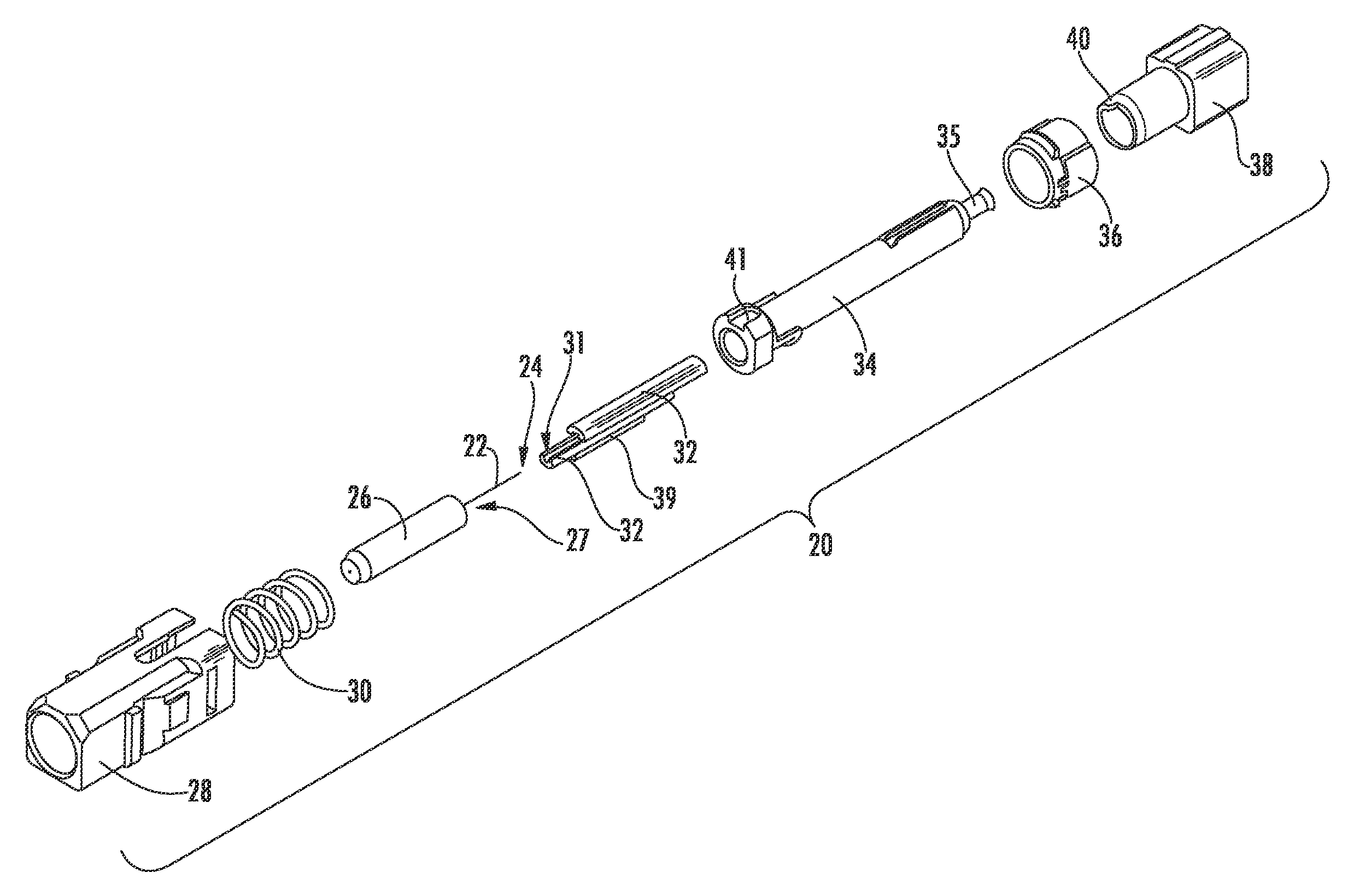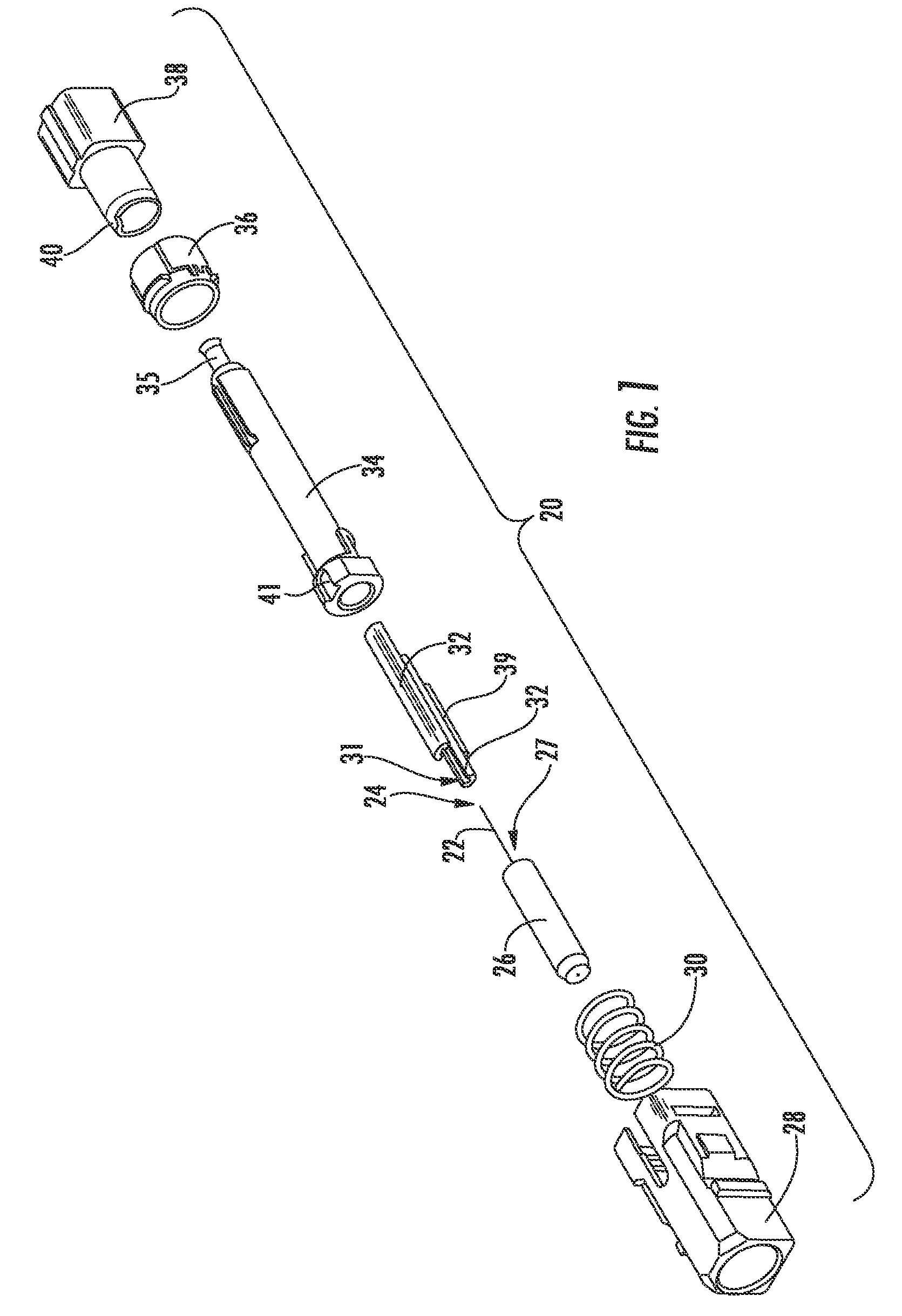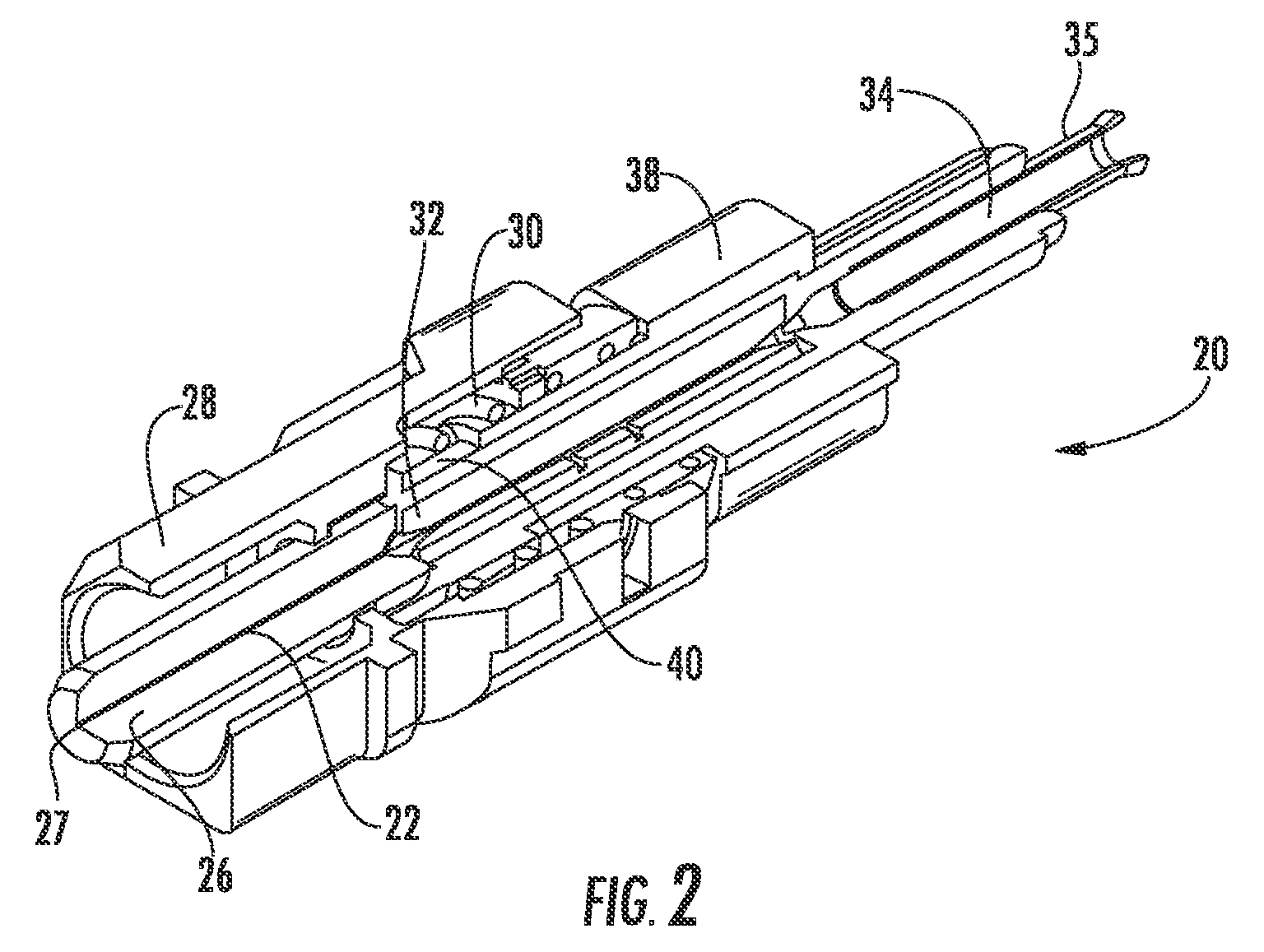Laser-Shaped Optical Fibers Along with Optical Assemblies and Methods Therefor
a technology of laser-shaped optical fibers and optical assemblies, which is applied in the direction of optical elements, manufacturing tools, instruments, etc., can solve the problems of increased attenuation, inability to meet the requirements of the splice section, so as to reduce or eliminate the glass defect zone and minimize the core gap in the mechanical splice section
- Summary
- Abstract
- Description
- Claims
- Application Information
AI Technical Summary
Benefits of technology
Problems solved by technology
Method used
Image
Examples
Embodiment Construction
[0025]The concepts will now be described more fully hereinafter with reference to the accompanying drawings in which preferred embodiments are shown. This invention may, however, be embodied in many different forms and should not be construed as limited to the embodiments set forth herein. These exemplary embodiments are provided so that this disclosure will be both thorough and complete, and will fully convey the scope of the concepts to those skilled in the art. Like reference numbers refer to like elements throughout the various drawings.
[0026]Referring now to the drawings, FIG. 1 shows an exemplary embodiment of a field-installable connector 20 (i.e., mechanical splice connector) having a stub optical fiber 22 with a laser-shaped tapered and angled end face 24. The laser-shaped stub optical fiber replaces a conventional mechanically cleaved fiber stub in a field-installable connector. During installation of connector 20, optical fibers may be brought into physical contact within...
PUM
| Property | Measurement | Unit |
|---|---|---|
| angle | aaaaa | aaaaa |
| angle | aaaaa | aaaaa |
| incident angle | aaaaa | aaaaa |
Abstract
Description
Claims
Application Information
 Login to View More
Login to View More - R&D
- Intellectual Property
- Life Sciences
- Materials
- Tech Scout
- Unparalleled Data Quality
- Higher Quality Content
- 60% Fewer Hallucinations
Browse by: Latest US Patents, China's latest patents, Technical Efficacy Thesaurus, Application Domain, Technology Topic, Popular Technical Reports.
© 2025 PatSnap. All rights reserved.Legal|Privacy policy|Modern Slavery Act Transparency Statement|Sitemap|About US| Contact US: help@patsnap.com



